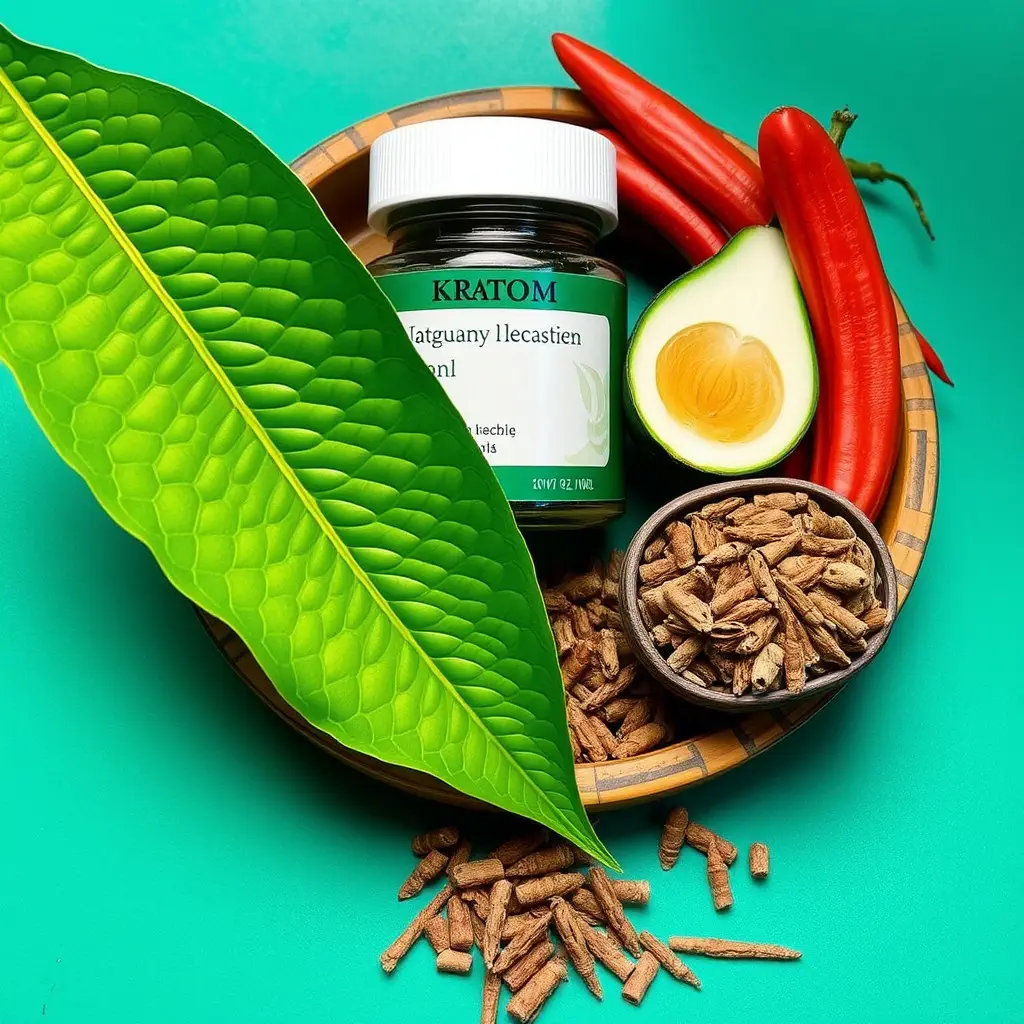Kratom, derived from Mitragyna speciosa leaves, has been used for centuries in Southeast Asia. Recent studies show its potential to enhance cardiovascular health through relaxing blood vessels and reducing LDL cholesterol, key factors in conditions like hypertension and atherosclerosis. By interacting with opioid receptors and possessing anti-inflammatory properties, kratom may lower blood pressure, improve heart rate variability, and reduce chronic inflammation, offering a natural alternative for stress and anxiety management. This could boost productivity by promoting better circulation, heart function, and energy levels.
Kratom has gained attention for its potential benefits beyond pain relief and anxiety reduction. This natural herb, derived from the Mitragyna speciosa plant, shows promising signs in improving cardiovascular health and boosting productivity. From reducing blood pressure to managing cholesterol levels, kratom’s unique alkaloids offer a new perspective on heart wellness. Additionally, many users report increased energy and focus without jittery side effects, making it a potential game-changer for those seeking enhanced productivity. However, responsible use and further research are crucial to unlocking its full potential.
- Kratom and Cardiovascular Health: The Science Behind the Plant
- – Explore the biological mechanisms by which kratom may positively impact heart health.
- – Discuss relevant studies or research highlighting kratom's effects on blood pressure, cholesterol levels, and cardiovascular function.
Kratom and Cardiovascular Health: The Science Behind the Plant
Kratom, derived from the leaves of the Mitragyna speciosa plant, has been used for centuries in Southeast Asia for its diverse medicinal properties. In recent years, scientific interest in kratom’s potential benefits for cardiovascular health has grown. Research suggests that certain compounds within kratom may offer positive effects on heart and blood vessel function.
One key compound, 7-hydroxymitragynine (7-HMG), has been studied for its ability to relax blood vessels, potentially lowering blood pressure and improving circulation. This action could be particularly beneficial for individuals looking to enhance their productivity by promoting better oxygen and nutrient delivery to the body’s tissues. While more research is needed to fully understand kratom’s cardiovascular effects, preliminary findings indicate that it may provide a natural way to support heart health and overall well-being, especially when combined with a balanced lifestyle including regular exercise and a healthy diet.
– Explore the biological mechanisms by which kratom may positively impact heart health.
Kratom’s potential benefits for cardiovascular health stem from its unique biological actions. One key mechanism involves its interaction with opioid receptors in the body, which can lead to reduced blood pressure and improved heart rate variability. By modulating these receptors, kratom may help dilate blood vessels, enhancing blood flow and reducing the workload on the heart.
Additionally, kratom’s anti-inflammatory properties could contribute to cardiovascular health by mitigating chronic inflammation, a known risk factor for heart disease. These effects are particularly relevant in the context of kratom’s use as a natural alternative for managing stress and anxiety, conditions that are also linked to cardiovascular risks.
– Discuss relevant studies or research highlighting kratom's effects on blood pressure, cholesterol levels, and cardiovascular function.
Kratom, derived from the plant Mitragyna speciosa, has been a subject of interest in the field of cardiovascular health. Several studies suggest that kratom may have positive effects on key risk factors associated with heart and blood vessel conditions.
Research indicates that kratom can potentially lower blood pressure by relaxing blood vessels and improving blood circulation. Some animal studies and preliminary human trials also suggest that it might help reduce cholesterol levels, particularly LDL (low-density lipoprotein) cholesterol, often referred to as ‘bad’ cholesterol. These effects could be beneficial for overall cardiovascular health and the prevention of conditions like hypertension and atherosclerosis. Additionally, kratom’s ability to enhance blood flow and oxygen delivery to tissues could contribute to improved heart function and productivity in individuals seeking natural ways to boost their energy and well-being.
Kratom has shown potential in improving cardiovascular health through various biological mechanisms. Research suggests that kratom may help lower blood pressure and improve cholesterol levels, contributing to better heart function. As with any natural supplement, further studies are needed to fully understand its effects. Remember that, while kratom for productivity has gained attention, prioritizing overall well-being, including regular exercise and a balanced diet, remains crucial for maintaining optimal cardiovascular health.






